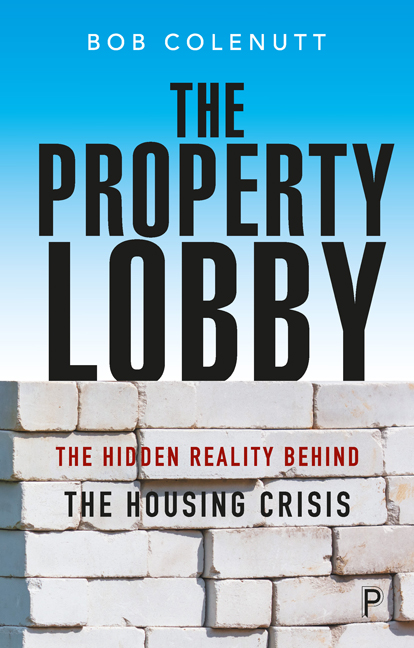Book contents
- Frontmatter
- Dedication
- Contents
- Acknowledgements
- Preface
- 1 The Finance–Housebuilding Complex
- 2 The Housing Shortage
- 3 The Housebuilding Business
- 4 Financing Housing Investment
- 5 The Property Lobby
- 6 Shaping National Housing and Planning Policy
- 7 The 2008 Financial Crash Continues
- 8 The Housebuilders and Affordable Housing
- 9 How the Social and Affordable Housing Sectors Got Swallowed
- 10 Local Case Studies
- 11 Unblocking the Impasse
- Postscript
- Notes
- References
- Index
8 - The Housebuilders and Affordable Housing
Published online by Cambridge University Press: 10 March 2021
- Frontmatter
- Dedication
- Contents
- Acknowledgements
- Preface
- 1 The Finance–Housebuilding Complex
- 2 The Housing Shortage
- 3 The Housebuilding Business
- 4 Financing Housing Investment
- 5 The Property Lobby
- 6 Shaping National Housing and Planning Policy
- 7 The 2008 Financial Crash Continues
- 8 The Housebuilders and Affordable Housing
- 9 How the Social and Affordable Housing Sectors Got Swallowed
- 10 Local Case Studies
- 11 Unblocking the Impasse
- Postscript
- Notes
- References
- Index
Summary
The question that has dogged the politics of planning and housing in the UK for the last 40 years is this: since landowners and developers are sweeping up large windfalls from developing land for housing, how much should they put back in planning obligations to provide affordable housing? As the government has repeatedly ducked its own responsibility since the 1980s for funding new affordable housing, or for taxing windfall gains, local authorities and communities are engaged in a continuous battle with landowners and developers, contesting levels of affordable housing on a site- by- site basis. Communities quite rightly say that they are directly affected by new developments and a decent amount of the windfall should go back to those most affected. Local authorities want to maximise the percentage of affordable housing on housing sites, while developers want to minimise it – and developers spend millions on consultants and lawyers to ensure that they get what they want.
The scale of the windfall is staggering. A planning consent on a piece of agricultural land in South East England can raise its price at least 100 times without a brick being laid. For example, a site worth £45,000 as agricultural land can be sold for £4.5 million with planning consent for housing. It has been estimated that across much of the country, at least a half of the price of a house is the land cost, so that in 2014/ 15, for example landowners obtained £9 billion in profit from land they sold for housing in England, in other words, an average of £60,000 per house. This figure went up to £13 billion in 2016– 17 (Aubrey, 2018). Imagine how many affordable homes could be built if just 50 per cent of this land value increase was captured by local authorities? It would amount to £6.5 billion a year for public services and better housing.
The battle over planning obligations
Planning obligations have been part of the planning system for the past 50 years. Section 52 agreements or planning gain were included in the Town and Country Planning Act 1971, and renamed ‘planning obligations’ in Section 106 of the Town and Country Planning Act 1990.
- Type
- Chapter
- Information
- The Property LobbyThe Hidden Reality behind the Housing Crisis, pp. 107 - 120Publisher: Bristol University PressPrint publication year: 2020



